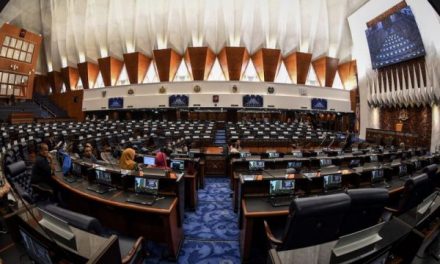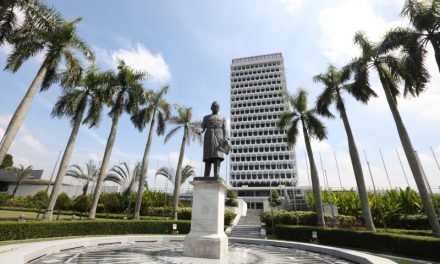Perak slashes time limit to open unsold Bumi properties to non-Bumis
The Perak state government will allow housing developers to apply for properties under the Bumiputera quota to be released to other buyers if the properties are not sold by the Perak Housing and Property Board (LPHP) within six months. Menteri Besar Ahmad Faizal Azumu said this was incorporated in the new Perak Housing Policy which comes into effect on April 1, 2019. The reduction in the time frame from two years to six months was to help housing developers who have to bear damage and maintenance costs of unsold properties. “If the properties are unsold after six months, the developers may apply for 50% of the Bumiputera quota to be released to other buyers, on the condition that the properties have achieved 30% physical construction and 60% of the non-Bumiputera lots have been sold. They may apply for the remaining 50% to be released after physical construction has reached 80% and 90% of the non-Bumiputera lots have been sold,” he said. Developers who sold Bumiputera lots to non-Bumiputera buyers without the state’s approval would be subject to fines or double levy payments. (Bernama)
Melaka to develop affordable houses worth RM4.22m
The Melaka state government, through the Melaka Housing Board (LPM) and housing developer Delta Diversified Sdn Bhd (DDSB), will jointly develop affordable housing units for Bumiputeras worth RM4.22 million, said Chief Minister Adly Zahari. The housing project, comprising 23 single-storey terrace houses, would be constructed on a 0.33 hectare tract in Taman Cheng Perdana within two years. The project will comprise 19 intermediate terrace houses worth RM180,000 each and four corner lot single-storey houses worth RM200,000 each. Construction is expected to begin within six months. (Malay Mail)
TNB inks MoU with 3 listed firms for smart home projects
Tenaga Nasional Bhd’s (TNB) wholly owned subsidiary TNB Energy Service Sdn Bhd (TNBES) through its unit, Maevi Sdn Bhd, has signed a memorandum of understanding (MoU) with three companies as strategic partners for energy management system and smart home projects. The MoU will see Maevi cooperating with two property-linked companies – Protasco Bhd and Tan & Tan Developments Bhd – as well as software and engineering company Diversified Gateway Solutions Bhd (DGSB). The MoU with Protasco is for the supply and installation service of Maevi smart homes for housing development projects, while the one with Tan & Tan is for establishing a smart partnership on the efficient management and supervision of IGB Bhd’s assets. The MoU with DGSB is to explore the energy management market through a joint-distribution programme. (The Malaysian Reserve)
Malaysia to issue Samurai bond next month
The Malaysian government will issue its ¥200 billion (RM7.4 billion) Samurai bond next month, said Finance Minister Lim Guan Eng. The 10-year bond is guaranteed by the Japanese government. “The coupon rate will probably not exceed 0.65%,” Lim said. The Samurai bond issuance was initiated by Prime Minister Tun Dr Mahathir Mohamad, who requested his Japanese counterpart Shinzo Abe for yen-denominated credit in June last year. Mahathir has said that Samurai bonds are cost-effective, and they will be used to reduce debt accumulated by the previous government. The Samurai bond sale will be Malaysia’s first in three decades, having last raised such debt in 1989. (The Sun Daily)
 PayPal Malaysia shuts doors, VSS starting April to August
PayPal Malaysia shuts doors, VSS starting April to August
Online payment company PayPal Malaysia has initiated a voluntary separation scheme (VSS) for all of its local employees starting April to August 2019 in light of plans to shut down its operations centre. Sources said that the company’s headquarters in the US made the announcement to close its Malaysia office yesterday as it was changing its business model to increase efficiency. In a press statement, PayPal reportedly said that the work being delivered at the Malaysian Operations Centre will be moved to other location. It also promised that the internal reorganisation will not affect its Malaysian customers. (Malay Mail)





